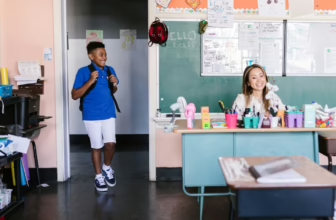Organizing time away for a neurodiverse family brings unique challenges, but with a little thought and preparation, you can create an enriching experience that respects everyone’s needs.
While you may encounter hurdles, a neuro-inclusive approach to planning your family holiday will ensure that every member of your family has the chance to relax, explore, and connect, whether they’re neurotypical or neurodiverse.
Below, we share some practical steps to help you arrange a trip everyone can enjoy.
Choose the Right Destination
Some neurodiverse travelers may feel overwhelmed in bustling, unpredictable environments, so you might consider quieter, nature-focused places such as national parks or seaside towns where crowds are less intense. If you’re considering a more vibrant setting, research quieter spots within busy cities and off-peak attractions.
Write a list of sensory-friendly options, ideally choosing places where it’s possible to take breaks or leave if someone becomes overstimulated. Flexibility will allow you to balance adventure and rest based on everyone’s energy levels.
Find Suitable Accommodation
For families with neurodiverse members, the right accommodation can mean the difference between a restful and a stressful trip. Look for options with extra space and private, quiet areas. Renting an apartment or house could give you the advantage of a full kitchen, letting you prepare familiar meals – especially useful if anyone has specific dietary preferences or restrictions.
If you prefer a hotel, seek one with rooms that are well-insulated from noise and check if they offer flexibility around check-in and check-out times to avoid high-traffic periods.
Plan Activities that Cater to Everyone
Creating a balance of activities is essential, as neurodiverse family members might vary in their tolerance for high-energy outings. When planning, involve everyone by asking about their preferences and concerns. Look for neurodivergent-friendly attractions that have quiet hours or dedicated spaces for neurodiverse visitors.
Schedule breaks between activities, leaving room for spontaneous relaxation or naps. A backup plan can also relieve anxiety, so if an outing becomes overwhelming, you’ll know where to retreat.
Pack Comforting Items
Packing familiar items can make a world of difference for neurodiverse travelers. Bring along any sensory aids, noise-canceling headphones, comfort toys, or weighted blankets if these help reduce anxiety or overstimulation. Packing favorite snacks can also be reassuring and could provide an easy option if unfamiliar foods cause stress.
For individuals with ADHD or autism, fidget toys can ease anxiety during long car rides or flights, providing a focus point in overwhelming situations.
A little preparation can result in a comfortable and enjoyable experience for all, ensuring that every member feels included, engaged, and ready to make happy memories together.
Follow me down the rabbit hole!
I'm Alice and I live with a dizzying assortment of invisible disabilities, including ADHD and fibromyalgia. I write to raise awareness and end the stigma surrounding mental and chronic illnesses of all kinds.








